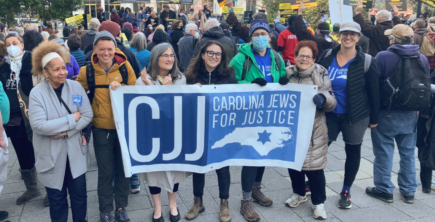
Our Community
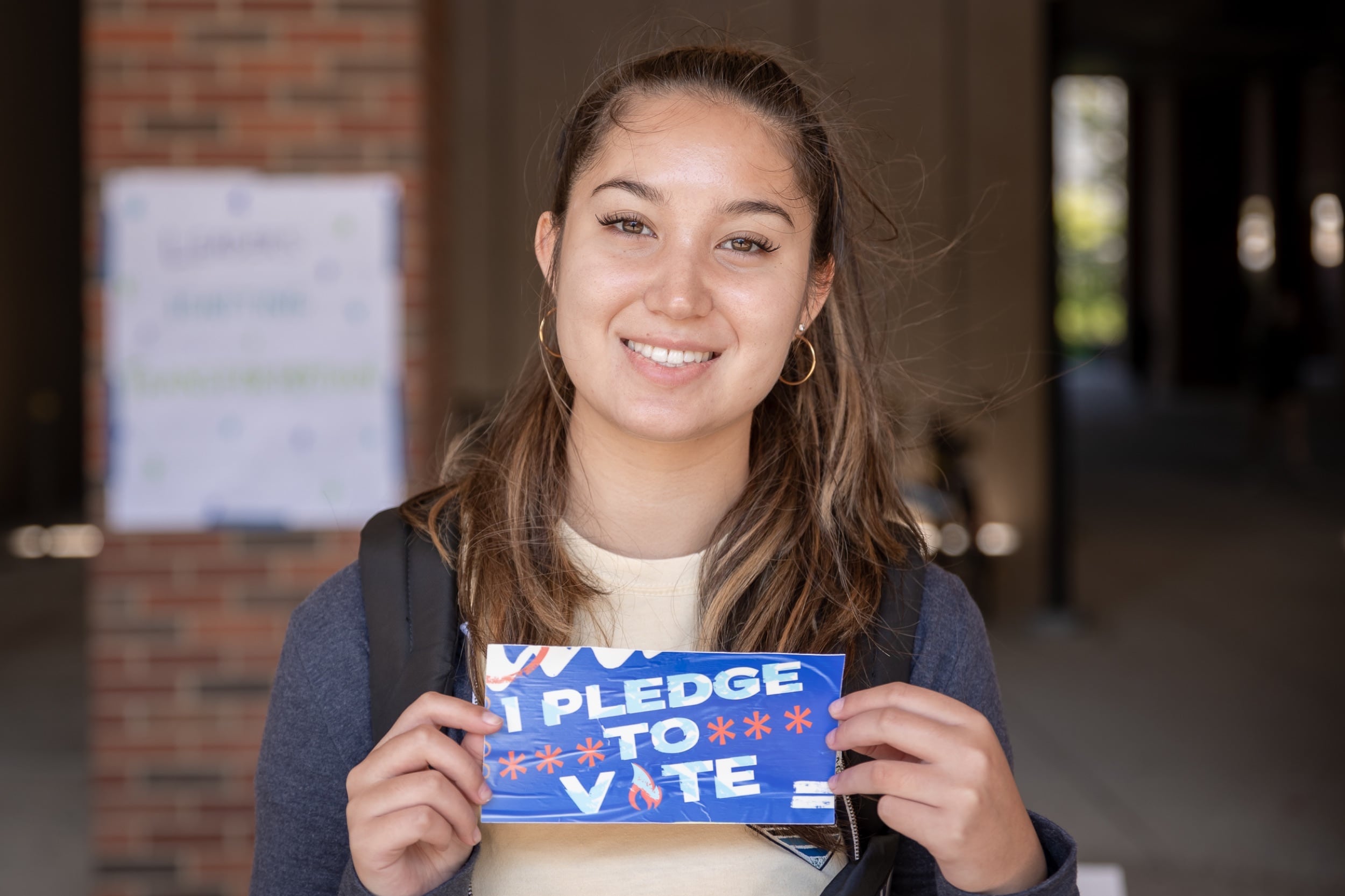
To better serve their constituents, local communities need to have agency and power. The US Supreme Court punted abortion access to the states. Local election officials have been harassed by disinformation campaigns. School boards have become the epicenter of culture war fights over critical race theory and gender expression. And extreme weather events, as a result of climate change, are causing municipal officials to respond more frequently to floods and fires. Our democracy cannot thrive if we only step up during presidential elections. Community groups are doubling down to mobilize voters before local and state level elections, and it is critical that donors do that too. What happens in state and local government determines whether we have a truly representative democracy.
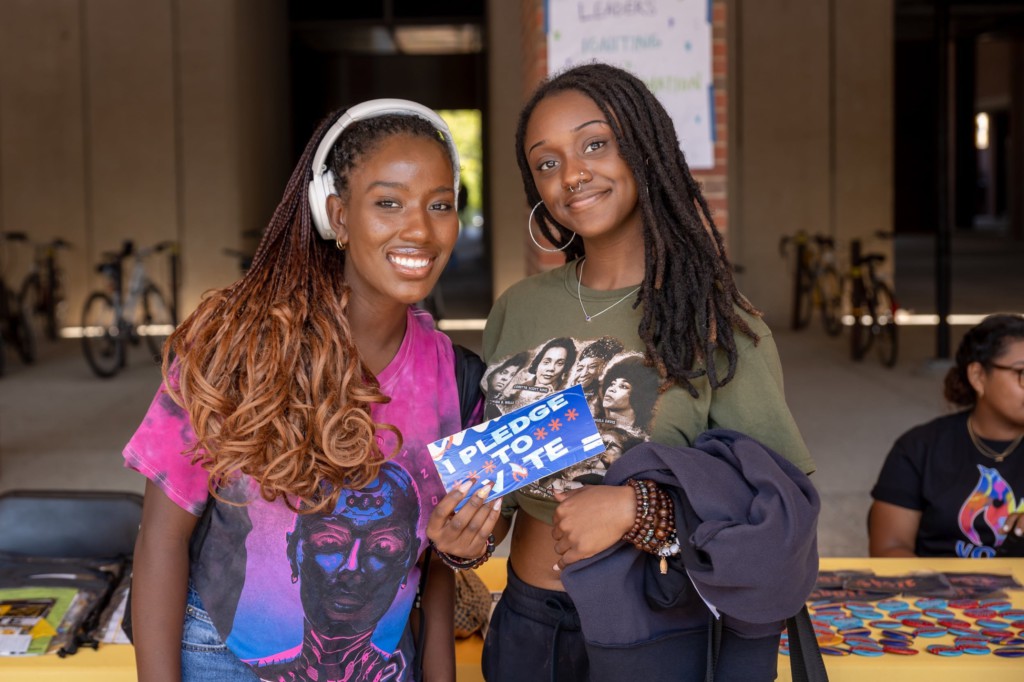
“Community groups are doubling down to mobilize voters before local and state level elections, and it is critical that donors do that too.” (Photo from Leaders Igniting Transformation)
For example, voters in Wisconsin and Pennsylvania will elect state Supreme Court justices, who will influence redistricting, voting rights, and abortion access. The New York Times Editorial Board called the upcoming Wisconsin Supreme Court election on April 4 “2023’s Biggest, Most Unusual Race.” Wisconsin has one of the most extreme partisan gerrymanders in the country. These gerrymandered districts have diluted the electoral power of many communities of color. A different ideological balance on the state Supreme Court could lead to changes in the redistricting map and create greater opportunities for the empowerment of BIPOC voters.
Turnout in the Wisconsin primary election in February broke records. Yet only 1 in 5 voting age residents cast a ballot. Turnout was uneven across the state. Fewer voters turned out in Milwaukee County, which has the largest population and share of people of color, than Dane County, which is whiter and a little more than half the size of Milwaukee County. Turnout also dipped in rural areas in the state, including Northern Wisconsin.
The voting power of BIPOC communities in this spring election will influence the next justice elected to the Wisconsin State Supreme Court, a 10-year term. With this knowledge, Tides Foundation’s Healthy Democracy Fund (HDF) granted $1.6 million to base-building organizations in Wisconsin, Michigan, Pennsylvania, and Ohio in March. In addition to mobilizing voters year-round, Wisconsin-based organizations like Black Leaders Organizing for Communities, Leaders Igniting Transformation, and the Native Vote program of the Wisconsin Conservation Voters are registering, educating, and engaging voters ahead of the state Supreme Court election. Sustained civic engagement, advocacy, and organizing build a formidable base of voters that can elect decision-makers who reflect and respond to their communities and can hold public officials accountable to campaign trail promises.
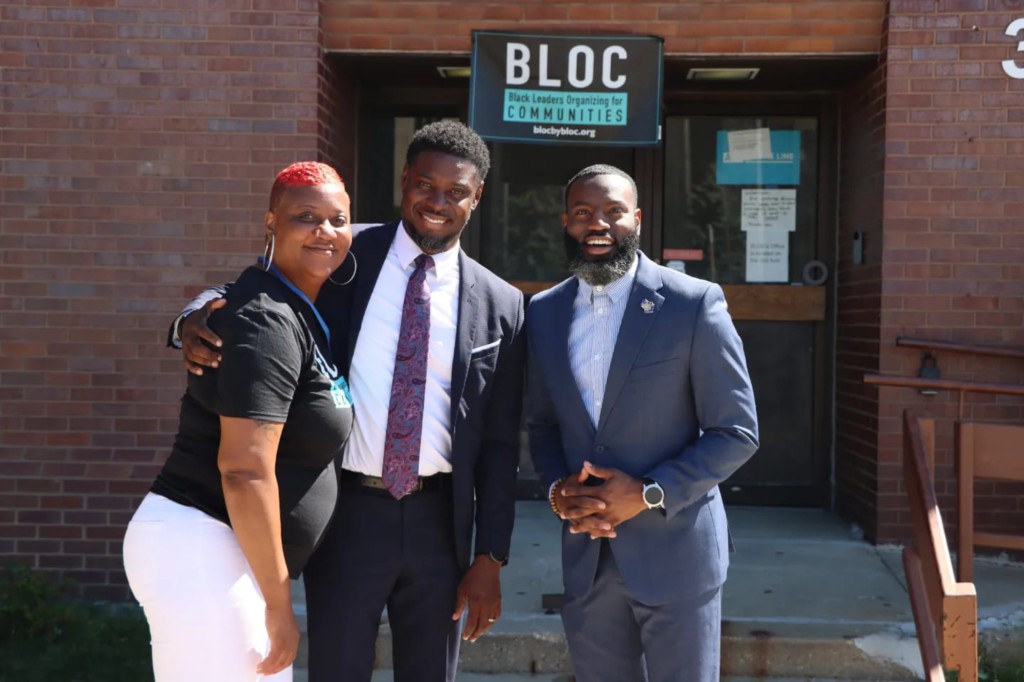
“Tides Foundation’s Healthy Democracy Fund (HDF) granted $1.6 million to base-building organizations in Wisconsin, Michigan, Pennsylvania, and Ohio in March” (Photo from Black Leaders Organizing for Communities)
Mayoral elections in Columbus, Ohio, and Philadelphia will lead to opportunities for BIPOC leaders to make demands on the spending of federal funding in their communities while building their teams of organizers and canvassers. Fighting mis- and dis-information in school board elections will inform a playbook for countering disingenuous narratives targeted at working-class communities in the 2024 presidential election.
People denied power at every level of government need a say at the local level. But the turnout gap between white and BIPOC voters is exacerbated during state and local elections, compared with presidential and midterm elections. Most low-dollar down ballot campaigns target the rare super voters who have voted in three or more local or primary elections. Unsurprisingly, these super voters skew wealthier and whiter, and are more likely to own homes than the average resident.
The HDF initiative is working to make the electorate in these local elections reflect the population of the communities represented by local and state officials. By investing in the capacity to educate and engage voters on the issues that hit closest to home in 2023, HDF and our network of grantees can get ready to mobilize at a larger scale in 2024.
Learn more about how you can support these local-level champions of democracy.
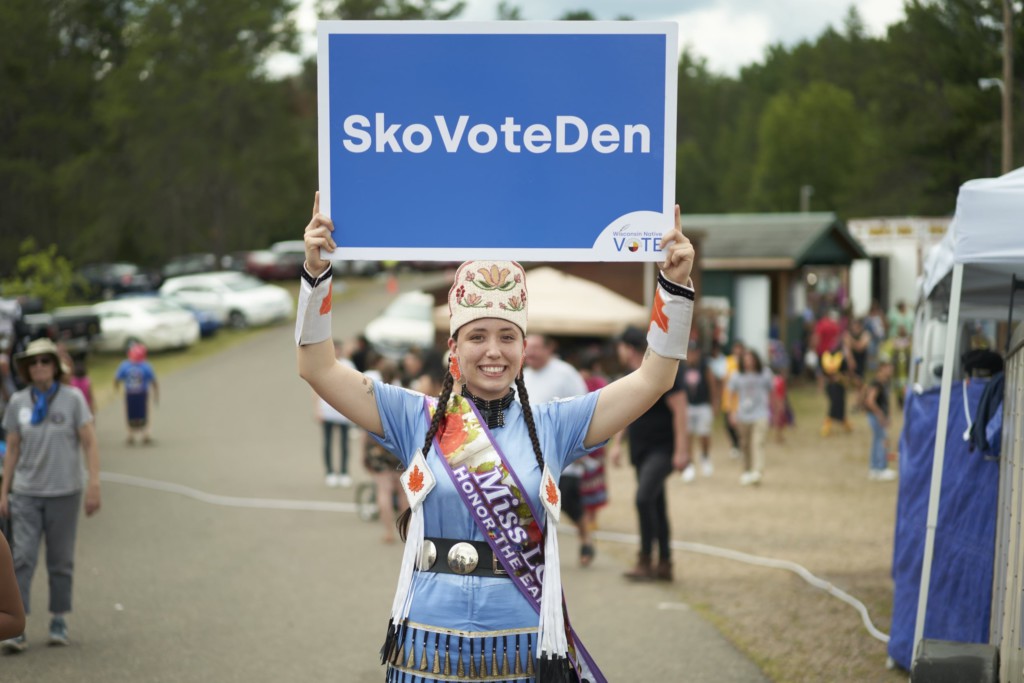
Wisconsin Native Vote attended pow wows, including Honor the Earth Pow Wow in Lac Courte Oreilles, to educate voters about the elections. (Photo from Wisconsin Conservation Voices)

Read the stories and hear the voices of social change leaders fighting for justice.